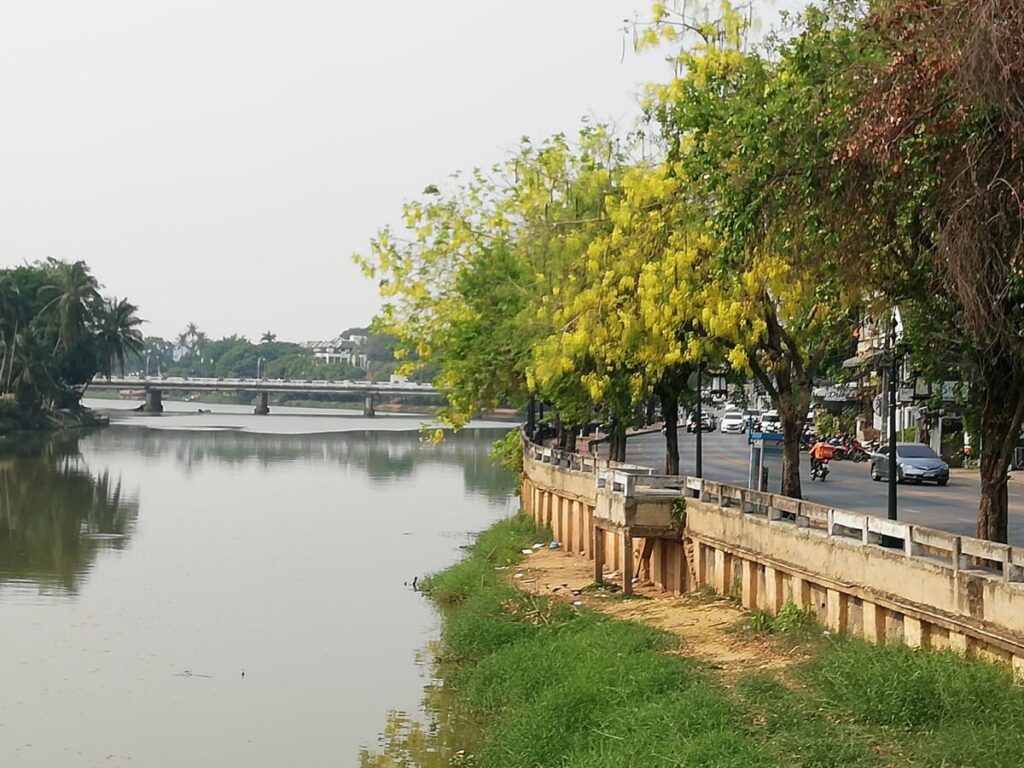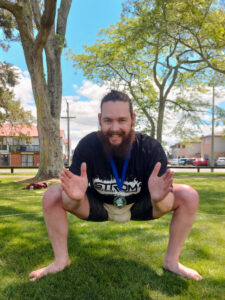A Test of Faith and Patience – Inside the World of Being a Missionary
By Ollie Newport
Imagine leaving your home and travelling to a foreign land, having little to no connections and not a clue what you’ll end up doing there. Welcome to the life of a missionary.
The term ‘missionary’ is rather ambiguous, often believed to be someone that leaves their home and travels thousands of kilometres to a place that perhaps is less wealthy in comparison to where they are from.
Being a missionary is not the simplest of tasks, sometimes it’s a calling, or other times a decision that will affect all areas of your life. Sacrifice is ultimately what it all comes down to, the willingness to leave what’s regarded as being ‘comfortable’, although that’s the beauty of (mission).

Mission work has been around for thousands of years, a prominent concept within both religious and secular worldviews. The definition of mission is described as “an important assignment given to a person or a group of people, typically involving travelling abroad”. Religious or not, mission is all about helping others, a form of sacrifice and generosity.
From a religious standpoint, Christians would largely consider Paul to be the first Christian missionary. Paul was a member of the Pharisees party, a Jewish social movement, who originally had no connection to Jesus before his crucifixion. Once Jesus left Earth, God asked Paul and the followers to be commissioned as a Minister, essentially meaning they would be servants of the things he had seen [Jesus dying and returning to Earth in the future], thus giving his disciples, and us, ‘The Great Commission’.
As history has progressed, the concept of being a missionary remains similar, although over time has expanded due to large-scale corporations such as Tearfund, WEC, Mission to the World or World Vision. There are many different forms of mission work, all of which serve a purpose to help or assist those in need. To name a few forms of mission; working in a church building, early childcare education, medical missions, social work, or volunteering are all different tasks that missionary couples or families tend to provide for.
The importance of mission from a Christian standpoint is paramount, signifying that there is a purpose to be filled. Religion relies on evangelism, sending people to share their knowledge with others who typically do not know themselves. In a religious context, spreading the word of God is the reason we all were brought to this earth, and therefore missionaries, in a traditional sense, are simply fulfilling their purpose.
For many missionaries, experiencing fear of moving to an entirely new country is common, although, for Hamilton couple Annette and Peter Hill, they were sure of their travels years before coming to fruition. Ethicorp is the corporation that supported the Hills in their years of mission work, whilst also helping hundreds of others in their journey regarding mission also.
Peter, who was born and raised in India, felt as though the pair were due for a lifestyle change, expressing his love for where he once called home.
“When you’re born and brought up somewhere, you sort of feel a connection and a loyalty to that place. I spent my first eleven years there, and I want to repay in some sense”.
Peter Hill
Unlike many missionaries, where there often can be a ‘spiritual calling’, the Hills’ experience didn’t follow that tradition.
Peter described their desire to move as there being a “push and pull factor”, stating, “When you or anyone else change direction in life, there’s usually a push and a pull. The push pushes you out if you’re not happy in what you’re doing or you’re unsettled, and then there’s a pull, there’s a better job option comes up or something that pulls you away.”
The Hills’ situation followed this theory, both hoping to seek a new lifestyle, as well as be drawn into the place which Peter once called home. Having prior experience living overseas in the United Kingdom, they knew they would be comfortable leaving home, eager to fulfil what would be their new lives.

Initial aspirations quickly came to fruition, following the work that Annette and Peter were a part of at Hebron School. Primarily, Hebron is a boarding school that caters for missionary children, as well as for business families who live outside of India and need a school for their kids to attend, in order for them to receive a British qualification.
Peter began teaching maths, having been a statistics lecturer at university, he was confident in finding a job suited to his qualification. Annette was a doctor in New Zealand, which posed a slight issue as Hebron School wanted a nurse, not a doctor. Annette emphasised that despite there being no work for her specific practice, there were still many other forms of work for her to undertake.
“I found that there was plenty for me to do. So, I ran school clinics. I ran a clinic out of town. I taught music for a while; I taught math for a while. There are always needs.”
Although these forms of work may not seem like traditional ‘mission work’, Annette provided great context for this, stating,
“You might ask, what’s missionary about teaching maths in a school? The answer is by specifically helping missionaries and teaching their kids. If they’re in the depths of India somewhere and there’s no local school for the kids to go, if they send them to a boarding school who’s going to teach them?”
Peter and Annette have always been “supporting kind of people”, mentioning how when they later went back overseas to Thailand, they helped pastor a large church. Although the couple weren’t the ones directly pastoring, they were helping locals to do those things.
A substantial portion of a missionary’s ‘journey’ is having to return back home, an unwelcomed feeling by many. Unlike the couple’s eagerness to initially move from New Zealand, Annette and Peter expressed how they felt a great loss having to leave India, and years later a similar feeling when having to leave Thailand.
Hebron school was a community, a place where everything was done together, eating, holidays, everything was done as a community, said Annette. Despite Peter being the one to have to leave India, his second home, again, Annette found it much more difficult when leaving.
“Leaving from India for me, as much as I talk about my love-hate relationship, there was a fascination about love, colour, and food and all the vibrancy of that. So that for me was really hard coming back here and the loss of that, as well as those good friendships”.
Travelling from New Zealand to places such as India and Thailand, where the Hills lived, the food and cuisine are extremely different. Kiwis are used to ‘Westernised’ food, so the change in diet can be quite intense.
Food is one of the main factors that differentiates one culture from another, having distinctive tastes and an array of smells, the food can provide an experience in itself. For Annette and Peter, eating traditional Thai and Indian food felt like home, thus, after returning to New Zealand, their diet remained similar. When asked if they still eat the same food, they said,
“Yeah, from both India and Thailand. I mean, they’re both wonderful cuisines. I wouldn’t like to have Mongolian cuisine or Scottish cuisine particularly, but Indian and Thai are wonderful.”
As the son of another missionary couple, Jordan Sing is all too familiar with the food from Southeast Asia, having lived in Chang Mai, Thailand for the best part of four years. Having a portion of his younger years growing up overseas provided him with a different view on life, experiencing another culture and even something as simple as the difference in food, Sing is greatly appreciative of his travels. Food is a great reminder of where he once called home and presents the opportunity to reflect on fond memories with his family.
“I feel like if you’ve lived overseas, you’ve eaten well. Some cuisines just remind me of great memories, and I love to eat the food again and as much as I can”.
Sing continued his train of thought, touching on significant differences after moving from New Zealand and living in Thailand.
“Food aside, one of the biggest things for me to adjust to was people’s accents – everyone who could speak English spoke American English. To this day, 9 years later, I still find the American accent annoying”.
Moving to a country on the other side of the world is one thing, although moving back home after four years is also quite a task. Taking time learning a new language, and adjusting to the culture and the people is hard to alter once leaving for home again, though Sing had an intriguing experience.
“After I left Thailand, I really struggled with finding relatable friends. I’d spent my early teenage years amongst people who’d experienced moving country at a young age. Back in New Zealand though, half the people I met hadn’t even left the country, which baffled me”.
Jordan sing
For people like Annette and Peter, seeking a lifestyle change and ready to explore new cultures, or those like Jordan, travelling the world at a young age, being a missionary presents its obstacles, though brings just as many blessings. With a glimmer of trust and a desirable heart, maybe you too could find yourself in a similar situation one day.




